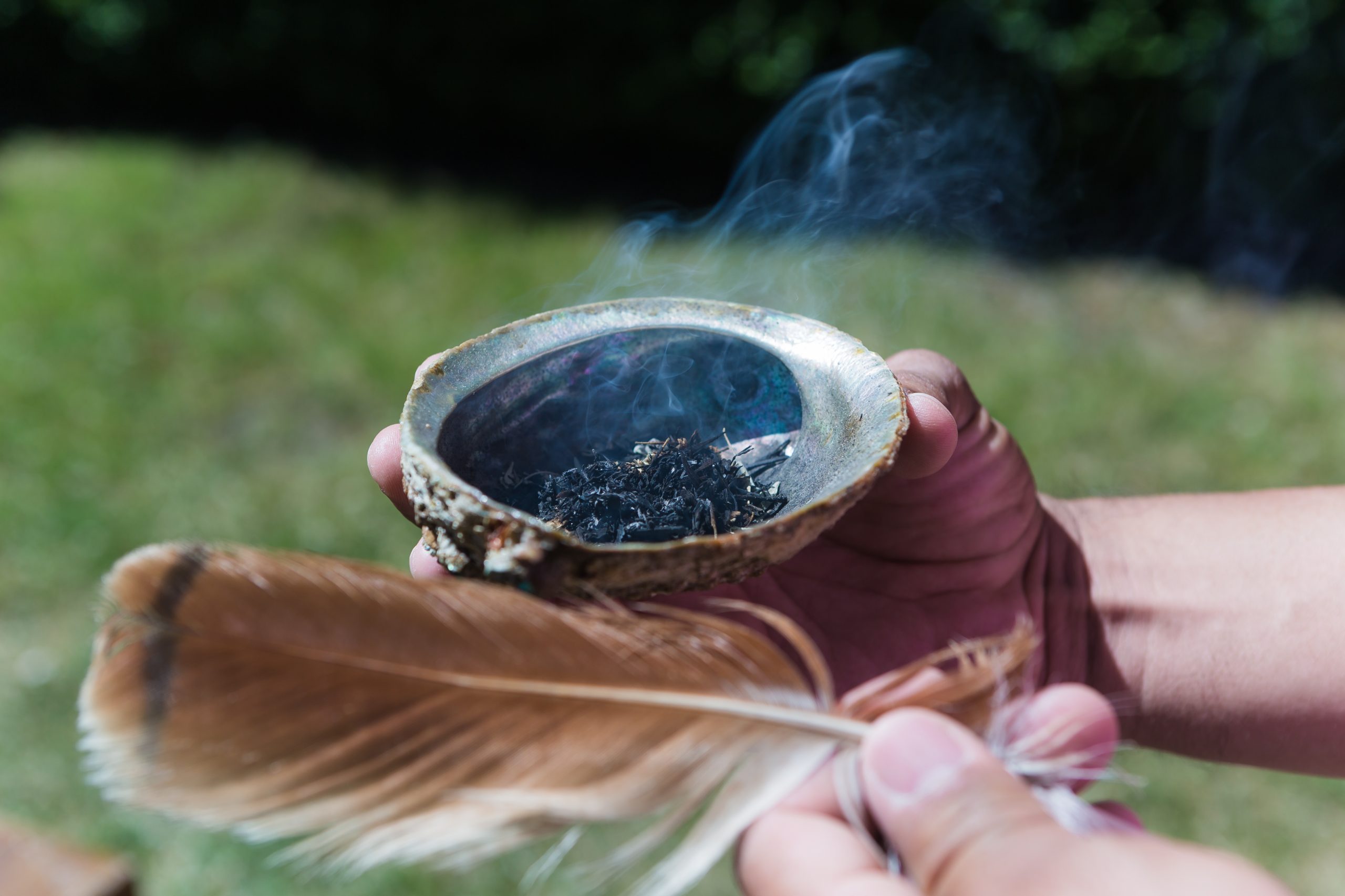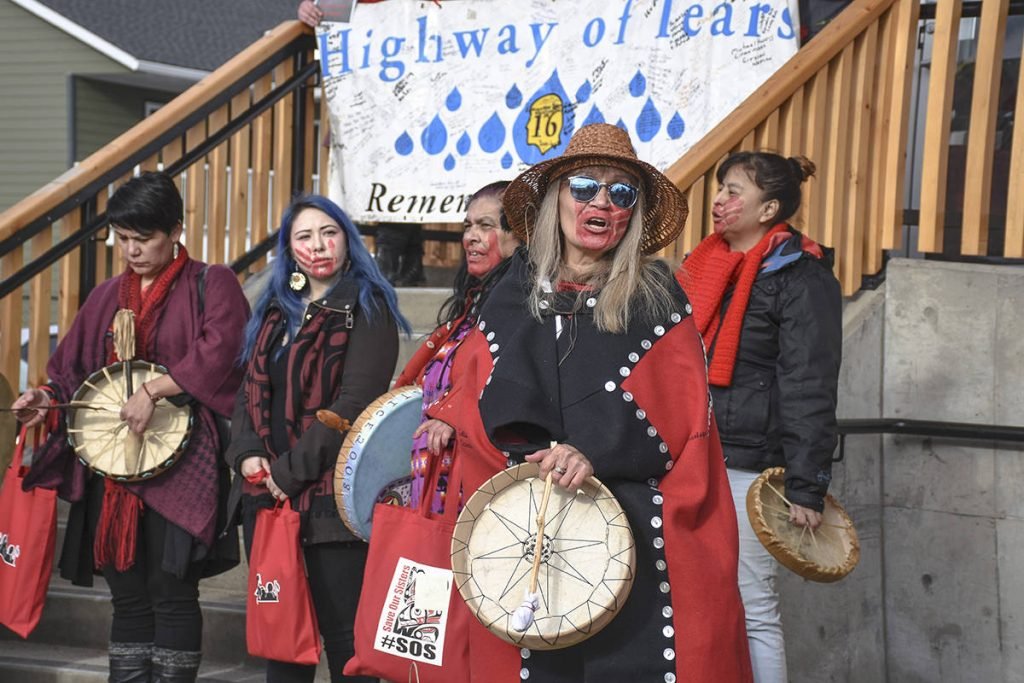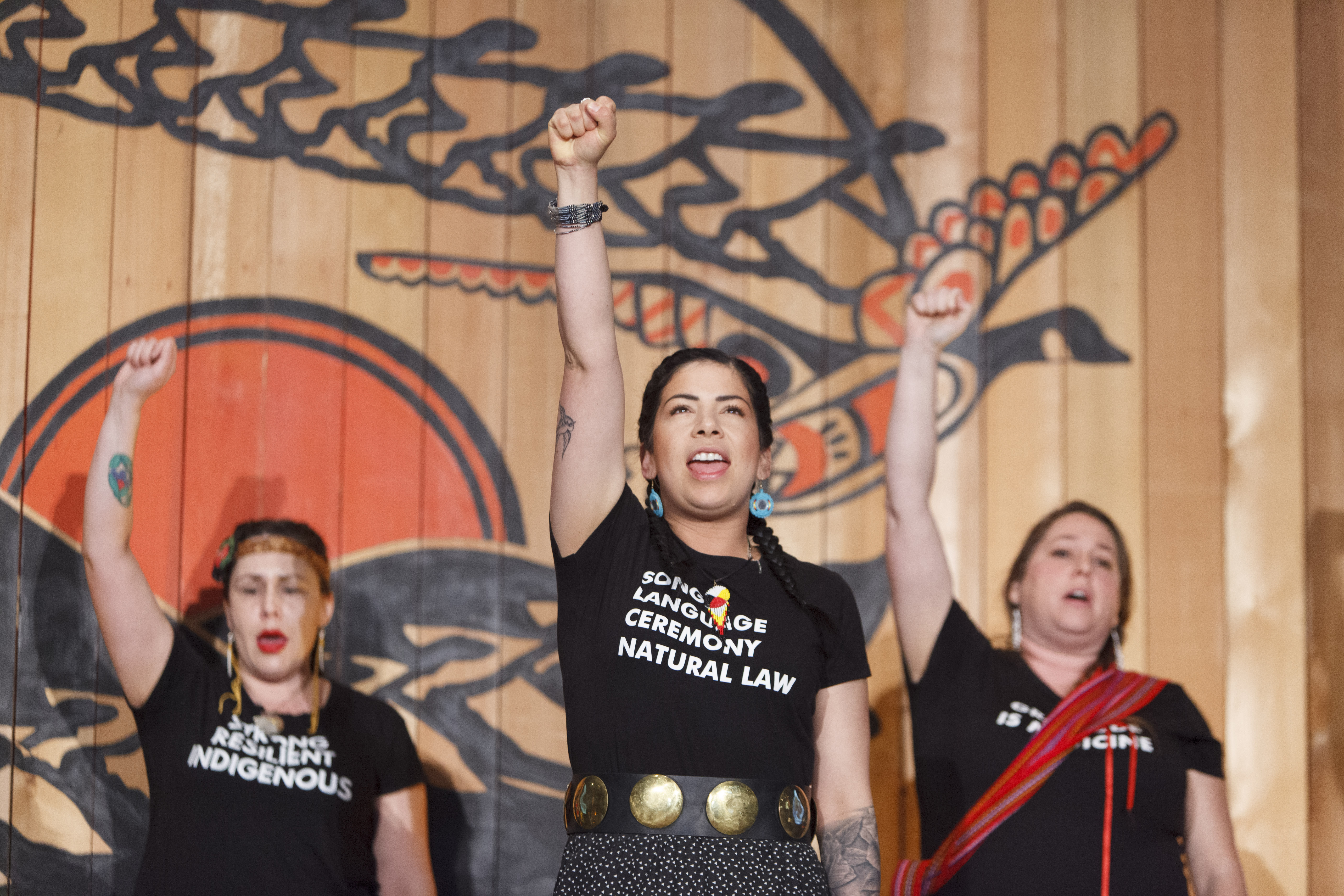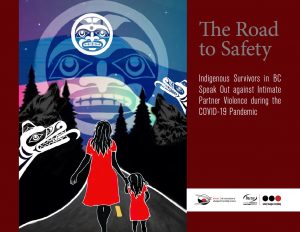Photo: All Nations Strong Women for Education and Reconciliation (ANSWER), an urban – Indigenous women’s drum group located on Lekwungen and Esquimalt territories perform during a closing ceremony for Gathering Our Voices 2019, an Indigenous Youth Leadership Conference hosted on Nuu-chah-nulth territory of the Tseshaht and Hupacasath First Nations (Port Alberni, BC).




